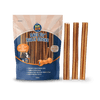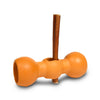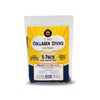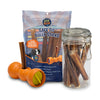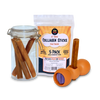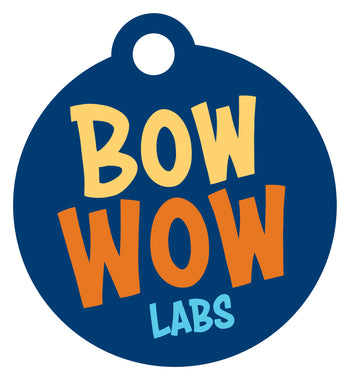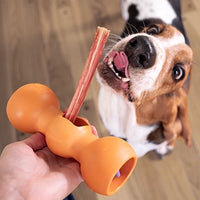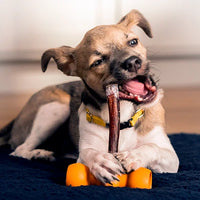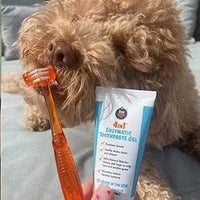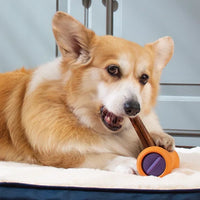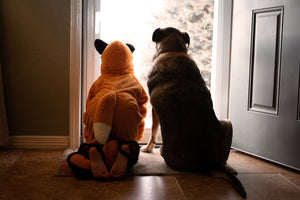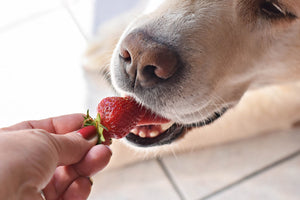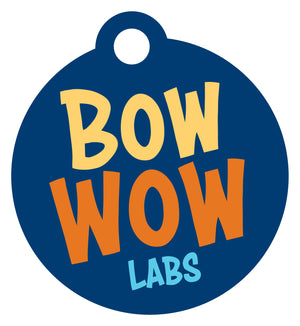
We’re back again with dog training tips from Bow Wow Labs’ resident training expert!
Raising a new puppy can be both a challenging and joyful experience. During the first 16 weeks of your dog’s life, not only are you getting to know her and her personality, but she is getting to know the world around her.
Through her initial interactions with people, smells, sounds and fellow four-legged friends, she will form trillions of new brain connections in a matter of weeks.
To help your pup form successful habits, and promote patient and kind behavior in the beginning stages of his/her life, use these training tips to:
- Socialize your puppy
- Teach your puppy about the external environment
- Encourage good behavior with commands and rewards
Socializing your puppy

Tip 1: When meeting new people, encourage your pup to sit and wait while the person approaches. If she stays calm, award her with a treat.
*Side tip for the human approaching: If you have the opportunity to let the approaching person know, ask them to offer a hand (palm down) for your pup to sniff. Let them know to always pet under the chin rather than on top of the head. Some dogs get anxious when they can’t see the hand that is petting them.
Tip 2: When meeting other dogs, don’t approach another dog from behind. Instead, encourage nose-to-nose greetings. If your pup has a successful nose-to-nose greeting, offer a reward immediately to associate that greeting with positive reinforcement.
Teaching your puppy about the external environment

Tip 1: Loud and sudden noises can be jarring and spark fear in a young puppy. Of course, you can't always control everything that goes on around you, however, if you are in a situation where a surprise noise occurs, know that your puppy will likely look to you to provide safety and comfort. Identify the sound in a calm voice and give them a loving pat when they perk up, to let them know it is not something to be feared.
Tip 2: Fast and loud moving modes of transportation such as motorcycles, skateboards and bicycles can also incite fear in your pup. After all, they don’t know what these things are. All they see is a fast moving and loud object zooming by! Start the reward process early by associating these loud and fast modes of transportation with a reward or a loving pat. That way, instead of associating the unknown of these objects with feelings of fear, associate them with positive reinforcement from you, their masterful owner.
Encouraging good behavior with commands and rewards

Tip 1: Puppies are often highly motivated by food, so treats or small pieces of food can be used to teach your pup what word commands mean. Give your pup a verbal command once and use the food to move the pup into place. By pairing a food reward with each command, the puppy will soon learn to associate the word with what you want him to do.
Tip 2: Once the puppy starts to associate the word with the command, give the command once and follow it with a positive word and petting reinforcements. If you have to repeat the command many times, the dog will think that multiple repeated commands are acceptable before they do the action AND it likely means you are moving too fast for their little developing brains.
Go slow, patience and kindness is the key to a patient and kind puppy.
Related Resources
Consider Your Dog’s Temperament for Successful Training
5 Tips for Mastering Dog Ownership
Naturally Boost Your Dog’s Health with These 7 Effective Tips


